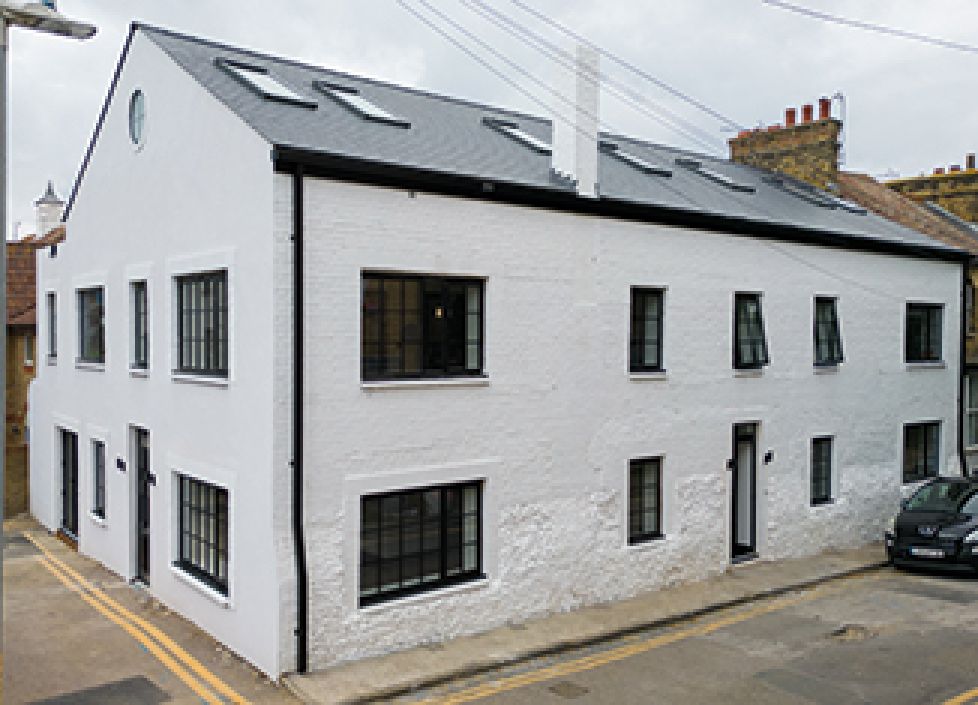The fall in the number of properties for sale across the country fuelled the first rise in new homes sold off-plan since 2016. In 2021, 37% of new homes sold in England and Wales found a buyer before completion, up from 35% in 2020, according to a new report by Hamptons.
The firm says that while this figure is still below the 47% peak recorded in 2017, it reversed the subsequent downward trend and meant that more new homes were sold off-plan in 2021 than in 2007 when its records began.
Hamptons reported: ‘The rise in off-plan sales has been driven by more houses (rather than flats) being sold before completion - 24% of new detached home completions in 2021 were sold off-plan compared to 21% in 2020. This figure rose from 31% to 33% for semi-detached properties and from 41% to 45% for terraced homes. However, the proportion of flats sold off-plan fell from 50% to 44% meaning for the first time since 2007, a terraced house was more likely to be sold off-plan than an apartment.
‘This shift meant that flats comprised just 37% of all homes sold off-plan in 2021, down from a recent peak of 53% in 2016 and a larger peak of 69% in 2008. Today, off-plan purchasers are increasingly likely to be owner-occupiers seeking houses rather than flats. This stands in contrast to pre-2016 times, and before the 3% stamp duty surcharge on second homes was introduced, where off-plan sales were firmly driven by flats sold to investors.
‘The largest developments continued to see a higher share of homes sold off-plan as these schemes tend to be best set up to agree forward sales. Last year 70% of properties at home developments of more than 50 properties were sold off-plan compared to 25% at developments of less than 10 homes. But these figures mask a shift which saw an increase in the share of homes sold off-plan at smaller schemes (up from 19% in 2020) as buyers sought out individuality, while off-plan sales rates in larger developments remained unchanged.’
Most new build buyers hand over a standard 10% deposit on exchange of contracts with the balance payable on completion. And this means that last year buyers paid a record £1.1bn in deposits to developers for homes that had yet to be built. This is three times the amount handed over in 2007 (£348m) and marks the first time this figure has exceeded £1bn. This value has been driven up by rising prices and a steady shift towards more houses and fewer flats being sold off-plan which has pushed up the size of the average deposit.
With houses increasingly likely to be sold off-plan and stock levels lowest in the countryside, the Cotswold District saw more new homes sold off-plan than anywhere else in England and Wales. Here, 86% of new homes completed last year had been sold before they were built. Just two of the 10 local authorities which saw the highest proportion of homes sold off-plan across England and Wales last year were in London, down from six five years ago, according to the report.
Commenting, David Fell, senior analyst at Hamptons, said: “The lack of second-hand homes available to buy has meant that owner-occupiers are increasingly turning to new builds, with more willing to buy off-plan in the face of limited options on the market. Typically, these are chain-free homeowners who have more flexibility on moving dates. Despite this, owner-occupiers don’t buy as far in advance as investors who are often happy to wait a year or two, particularly when prices are rising. They’re also more likely to seek out bespoke, individually designed houses in smaller schemes, rather than flats in big city centre blocks.
“After nearly four years of falls, the rise in off-plan sales will provide respite for developers looking to maintain sales rates as Help to Buy winds down. Whether this shorter-term shift has the potential to turn into a longer-term trend remains to be seen, but unlike the past, it’s owner-occupiers rather than investors who are likely to continue driving off-plan sales in 2022.”
On 29 March, housebuilder Bellway reported that it has seen its half-year profits increase to £250m after completing a record number of new homes. The Newcastle-based company said that pent-up demand helped it finish constructing nearly 5,700 properties in the half-year period.
Average sale prices also increased to £311,849, which the group said was largely driven by customers seeking more spacious places where they could work from home. Bellway has an order book of almost 8,000 homes valued at around £2.2bn as of 13 March, compared to just 5,772 homes worth more than £1.5bn in March 2020.
It added that it was on track to build over 11,100 new properties this financial year at a mean sale price exceeding £305,000, and 12,200 properties in the following year.



















